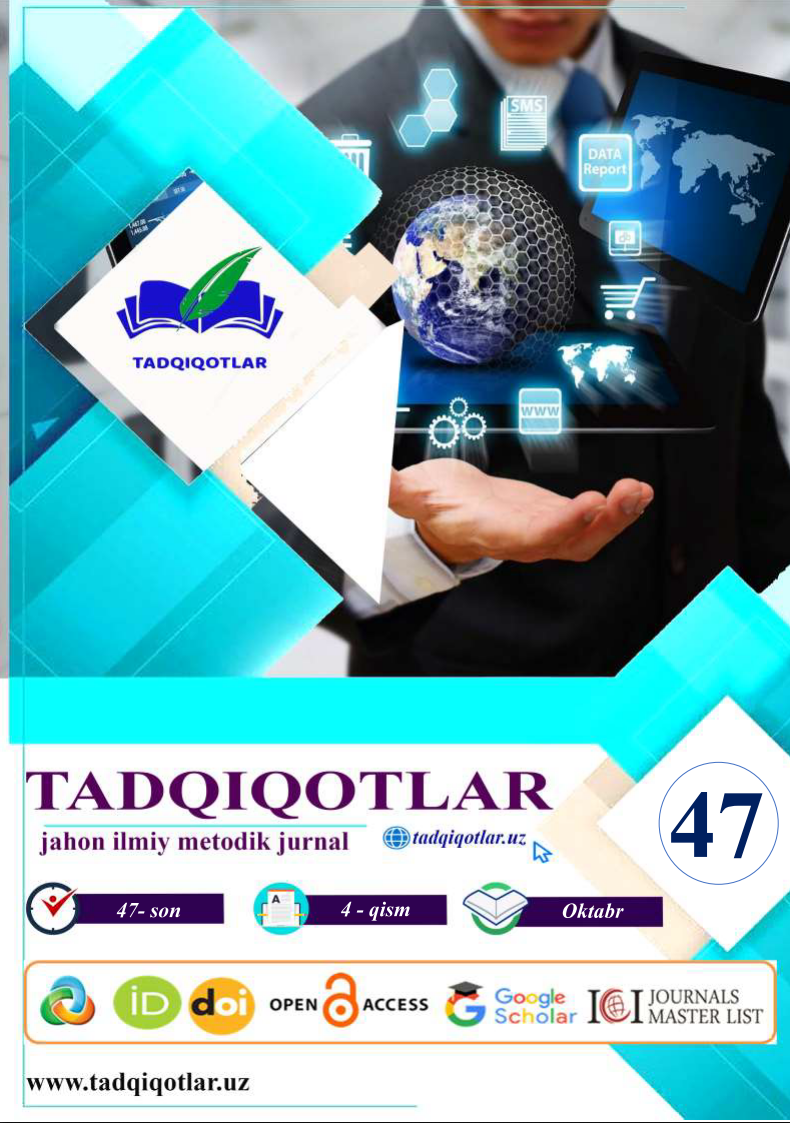HOW TO ASSESS WRITING, VOCABULARY AND GRAMMAR IN ESL CLASSROOM
##article.abstract##
Annotation: Writing skills is both challenging and essential skills to acquire in
English language. Writing is a crucial skill for personal and social advancement, as
well as a nation's economic success, requiring proficiency in both first and second
languages (Eckes et al, 2016). I will give an essay to write my students to boost their
writing skills and prepare real IELTS exam. While doing this task, students should
know how to use lexical resources and grammar rules. Writing essay is considered as
an extended response task. Students will write an essay according to the topic which is
about “Healthy and Unhealthy food and lifestyle”. The essay will be graded based on
its grammatical structures, word use, coherence, and organization. Writing assessment,
like language testing, is a synthesis of ideas, concepts, and methodologies from applied
linguistics and psychometrics (Eckes et al, 2016).
##submission.citations##
References
Brown, H. D. (2004). Language assessment: Principles and classroom practices.
Longman.
Butler, Y. G. (2016). Assessing young learners. Handbook of second language
assessment. (pp. 377–395). De Gruyter, Inc
Eckes, T., Muller-Karabil, A., & Zimmermann, S. (2016). Assessing Writing. In D.
Tsagari & J. Banerjee (Eds), Handbook of second language assessment (pp.147-
.
Flowerdew, J., & Miller, L. (2012). Assessing listening. In C. Coombe, P.
Davidson, B. O’Sullivan, & S. Stoynoff (Eds.), The Cambridge guide to second
language assessment (pp. 225–233). Cambridge University Press.
Moore, P. J. (2018). Task-Based Language Teaching (TBLT)
O’Sullivan, B. (2012). Assessing speaking. In C. Coombe, P. Davidson, B.
O’Sullivan, & S. Stoynoff (Eds.), The Cambridge guide to second language
assessment (pp. 234–246). Cambridge University Press.
Peltekov, P. (2021). The International English Language Testing System (IELTS):
A Critical Review. ELTL (Journal of English Language Teaching and Linguistics)
e-ISSN: 2502-6062, p-ISSN: 2503-1848 2021, Vol. 6(2) www.jeltl.org doi:
https://dx.doi.org/10.21462/jeltl.v6i2.581
Puspawati, I. (2014). Fairness Issues in a Standardized English Test for Nonnative
Speakers of English. TESOL Journal.
Savignon, J. S. (1991). Communicative Language Teaching: State of the Art.
TESOL QUARTERLY, Vol. 25, No. 2. University of Illinois at Urbana-Champaign
Tsagari, D., & Banerjee, J. (2014). Language Assessment in Educational context.
In M. Bigelow & J. Ennser-Kananen (Eds.), The Routledge handbook of
educational linguistics (pp. 339–352). Taylor & Francis
Taylor, L., & Chen, N. N. (2016). Assessing students with learning and other
disabilities/special needs. Handbook of second language assessment. (pp. 377–
. De Gruyter, Inc.
Winke, P., Lee, Sh., Irene, J. A., & Choi, I. (2018). he Cognitive Validity of Child
English Language Tests: What Young Language Learners and Their Native-
Speaking Peers Can Reveal. TESOL QUARTERLY. Michigan State University East
Lansing, Michigan, United States




